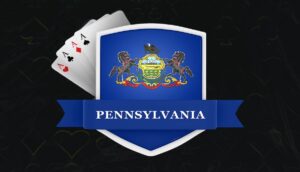Leaders of an industry that has long claimed it isn’t gambling, are now diving headfirst into New Jersey’s new legal and regulated sports gambling market.
A move that comes as little surprise, considering most of what the top daily fantasy sports (DFS) operators said and did while several US states considered regulating that industry, featured a similar kind of hypocrisy.
New Jersey has battled major professional sports leagues and the NCAA in the courts for the right legalize sports betting since 2011.
On May 14 of this year, it finally got it. In a 6-3 decision, the US Supreme Court declared the Professional and Amateur Sports Protection Act of 1992 (PASPA) unconstitutional. PASPA is the law that banned full-fledged sports betting almost everywhere outside of Nevada. The decision opened the door for all 50 states to legalize sports betting.
The NJ sports betting market
New Jersey lawmakers immediately began working on regulatory legislation to govern the state’s sports betting market. The legislature passed its regulatory sports betting bill on June 7. Gov. Phil Murphy is expected to sign the bill into law any day now, opening up the market.
In the meantime, casinos, racetracks, and sports betting operators that will run the industry have been forming alliances and figuring out how they’re going to do it all.
Monmouth Park racetrack and the soon-to-open Ocean Resort Casino have both teamed with British bookmaker William Hill to open sportsbooks and run online sports betting operations.
Golden Nugget Atlantic City has inked a sports betting deal with Churchill Downs and online sports betting technology company SBTech.
DFS operators get in the mix
And now, the country’s top DFS operators are getting in the mix.
Last week, DFS market leader DraftKings announced it is partnering with Resorts Casino Hotel to open a sportsbook on the property. The two will also launch a sports betting app along with a web-based sports betting platform.
This week, Betfair US announced it has reached a long-term agreement for retail and online and mobile sports betting with Meadowlands Racetrack. It also signed a similar deal with Tioga Downs racetrack and casino in New York, pending the passage of sports betting legislation in that state.
Betfair US is a subsidiary of Paddy Power Betfair, one of the largest publicly traded sports betting companies in the world. The company also recently announced it is combining its US operations with leading DFS company FanDuel.
It also runs the TVG online horse race wagering network in the US.
According to Betfair US CEO Kip Levin, FanDuel will be the company’s primary US brand. Which could mean a FanDuel-branded sportsbook opening at Meadowlands Racetrack before long.
Of course, that would mean two DFS operator-branded sportsbooks in NJ. Plus, one rather big move into the gambling industry for two companies who have always claimed the product they offered isn’t gambling at all.
WSOP NJ – Get $10 No Deposit
-
Visit WSOP NJ
- $10 FREEUp To $1,000 Bonus With Deposit
- WSOP NJ ReviewOverall Grade A-
- Games A
- Support B
- Banking A+
- Player Value A-
Is DFS gambling?
Lawmakers in various states across the country began looking at DFS legislation when the popularity of the activity suddenly boomed in 2015.
In an effort to shape the legislation, DFS operators told everyone who would listen that DFS isn’t gambling. They called it a game of skill in an effort to convince lawmakers it required only limited regulation.
Fantasy sports contests involve people competing against one another by drafting a team of pro athletes. The teams earn points based on the statistical performance of the drafted players in real-life sporting events. DFS contests usually take place over a single day. They run like poker tournaments. Participants buy into the contest. The top point-earning teams win the largest pieces of whatever prize pool is created from the buy-ins. Once the operator takes a cut.
Whether it requires certain skills to succeed or not doesn’t change the fact DFS is gambling. However, DraftKings and FanDuel have never be accused of letting the facts get in the way of a good argument.
Billion dollar industry?
The operators said millions were participating in paid-entry fantasy sports contests and putting billions of dollars on the line. Overstatements that quickly changed when legislators started looking at high licensing fees and tax rates.
Facing that threat, DFS operators started crying poor, claiming revenues were much smaller than that and the business was fragile. The story was suddenly that burdensome regulation, high tax rates, and licensing fees would sink them.
They touted DFS as a billion-dollar industry when they were pushing for legalization. Then they begged for mercy when legislators looked to treat it as such.
DFS operators have every right to jump into what appears to be the much more lucrative sports betting market. It will just be interesting to see if they finally admit they’ve been in gambling from the beginning. Or, will the hypocrisy continue?
The post Don’t Let The New FanDuel Sports Book Confuse You, DFS Isn’t Gambling appeared first on Play USA.
 Visit WSOP NJ
Visit WSOP NJ





